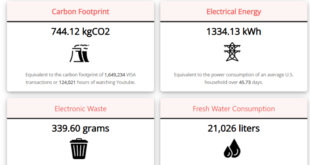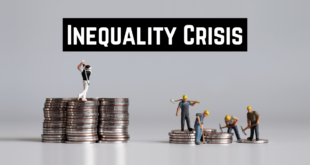from Dean Baker The news has been filled with stories in recent days about Republicans desperately hunting for $2.0-$2.5 trillion (2-3 percent of the budget) in budget cuts over the next decade to cover the cost of extending tax cuts to the rich. While Elon Musk and his DOGE team have been screaming about corruption all through the government, they actually have found little that can be helpful here. They appear to have found virtually nothing by way of actual corruption. Most of what...
Read More »The Greek myth that helps explain the failings of modern economics
from Nat Dyer Readers of this blog will be well aware of the myriad problems with the mainstream economics that has dominated university and political life for the past few decades. As Lars Syll wrote here last month, too much of the profession “has since long given up on the real world” and is happy to investigate the “thought-up worlds” of unrealistic economic models. Too much attention is focused on how the parts of the model fit together, rather than on how well the models fit with...
Read More »The incredible cost of Bitcoin.
Source AI is not what it is supposed to be. Inspired by my son, who attends higher education, I asked chat-GPT to write an article about the energy use of bitcoin in the style of my blog post series ´The real costs of making money´. Look here. Guess what: chat-GPT did not emulate my style but… has a better style. Sadly, however, you can´t rely on it for the facts (I am impressed by the speed, however, even when superficial googling yields better results, especially when non-english...
Read More »Weekend read: Keynes’ critique of econometrics is still valid
from Lars Syll Mainstream economists often hold the view that Keynes’ criticism of econometrics resulted from a sadly misinformed and misguided person who disliked and did not understand much of it. This is, however, nothing but a gross misapprehension. To be careful and cautious is not the same as to dislike. Keynes did not misunderstand the crucial issues at stake in the development of econometrics—quite the contrary. He knew them all too well and was not satisfied with the validity and...
Read More »Here we are
from Peter Radford Random thoughts on day one of America’s war on the world. This is my way of summarizing, it is not definitive by any means! I wrote in haste. Here’s a quote to get us started: “What made fascism attractive in Europe and elsewhere was its combination of national autarkic aims, militarism, statism, and a glorification of technology, which suited the inclinations and interests of military rules and modernizing autocrats.” [Osterhammel and Peterson; “Globalization, A...
Read More »Donald Trump is badly nonfused # 67,218: The story of supply and demand
from Dean Baker Donald Trump is the world’s leading expert in getting things wrong and one thing he gets wrong bigly is the value of the U.S. domestic market. Trump seems to believe that our domestic market is incredibly valuable to the rest of the world and that access to it should allow him to extort large concessions from the rest of the world. This is a seriously wrong understanding of the world economy. The basic point is a simple one, when other countries sell us things, they are...
Read More »How inequality causes financial crises
from Lars Syll One way that inequality precipitates debt bubbles begins with “relative deprivation.” This concept concerns the discontent people feel when they compare their socio-economic status, measured by income, wealth, consumption, or other indicators of perceived economic welfare, with that of their richer counterparts. Economists have suggested several ways that this discontent may translate into indebtedness. One theory holds that people of a given income level may try to...
Read More »Christmas thoughts about counting the dead in zones of armed conflict.
In those days Caesar Augustus issued a decree that a census should be taken of the entire Roman world. (This was the first census that took place while Quirinius was governor of Syria.) And everyone went to their own town to register. Luke 1:3 (as will turn out below, this quote is not frivolous) Summary. The Gaza Ministery of Health, Airways and the World Health Organization have published robust data sets on victims of war-related violence in Gaza. Médecins Sans Frontières...
Read More »Mainstream distribution myths
from Lars Syll Pretending that the distribution of income and wealth that results from a long set of policy decisions is somehow the natural workings of the market is not a serious position … Pretending that distributional outcomes are just the workings of the market is convenient for any beneficiaries of this inequality, even those who consider themselves liberal … But we should not structure our understanding of the economy around political convenience. There is no way of escaping the...
Read More »Health insurance killing: Economics does have something to say
from Dean Baker I’m not one to generally tout the wisdom of the economics discipline, but it actually does offer some useful insights into the likely motive for the murder of Brian Thompson, the CEO of United Healthcare (UHC). According to media accounts, the suspect, Luigi Mangione, was angered by his own and others’ experiences being turned down when submitting claims for healthcare service. United and other insurers make a profit by restricting the claims they pay, so their profit...
Read More » Real-World Economics Review
Real-World Economics Review





